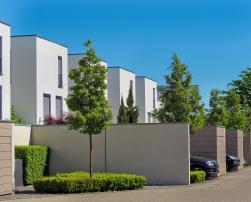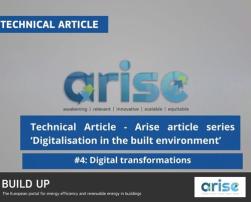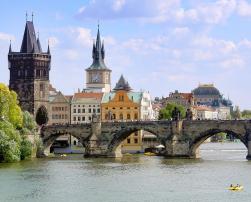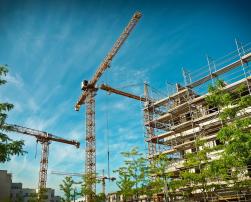

Technical Article - Can you heat your house with district heating with a lower temperature supply? A performance assessment approach
This article presents a simulation-based approach to assess the readiness of dwellings for adopting lower-temperature heat from district heating systems as a means of gas-free heating transition.
State of the art of the digitalisation of the building sector
Digital technologies, tools, and European initiatives are aiming to implement the digital transition across the building sector. These can be used at all stages of the value chain, from design and construction to operation and maintenance, and can tackle issues in society and many environmental aspects. Digitalisation in the building and construction sector represents an opportunity to innovate and decarbonise the whole value chain.

Technical Article - Exploring the role of occupants in buildings' energy performance gap
This article explores the energy performance gap phenomenon in the context of building construction and retrofit projects and focuses on the role of occupants.
Measuring and reducing embodied carbon in buildings: 5 hospitality case studies in Bologna, Italy
The research from architectural & engineering Open Project aims to contribute to the definition of a benchmark for the CO2 emissions at construction stages for “hospitality” buildings, taking into account four hotel or student dormitory buildings (three of which are completed and occupied, the fourth one still to be built), located in Bologna, Italy.
Technical Article – Next generation cooling systems: An analysis of two case studies with active and passive solutions in buildings
The demand for sustainable space cooling technology is increasing globally. Passive cooling systems should be implemented, and when necessary, combined with active cooling. This article provides two practical examples, one implementing an active system and the second applying a passive solution using a simulation tool.

Technical Article - Arise article series ‘Digitalisation in the built environment’ #4: Digital transformations
To achieve the required European climate targets, it is vital that the green economy delivers a better-skilled workforce and develops new competencies and methods of working. The overarching aim of ARISE is to support the transition of the construction sector by providing its workforce with digital and sustainable energy skills for the future.

Technical Article - Digital Technologies in Heritage Conservation
Authors:
Alexandra Troi - Coburg University of Applied Sciences / Germany & Eurac Research / Italy
Mona Hess: Bamberg University / Germany
Olaf Huth: Coburg University of Applied Sciences / Germany
Matthias Jagfeld: Coburg University of Applied Sciences / Germany

Technical Article - Performance optimisation of an active façade through parametric simulations
Buildings must play a major role in decarbonising our existing energy system. Shading devices are essential to control solar gains and improve the comfort of occupants in buildings. Dynamic shading systems, such as Venetian blinds or Electrochromic (EC) glazing, have variable optical and thermal properties and can be used to regulate solar gains depending on when they are needed.

Technical Article - ENSNARE: Digital toolkit for a more efficient design, construction and operation of NZEB residential renovations
The ENSNARE project aims at boosting the uptake of novel and highly efficient solutions for NZEB renovation via comprehensive methodology, tools, and technologies that accelerate the current renovation rate in European residential buildings.